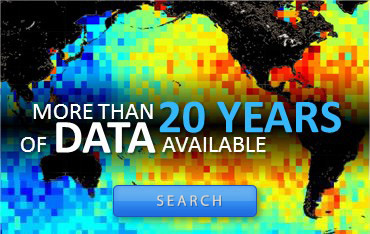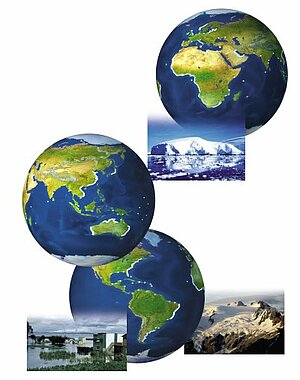Mean sea level rise and the Greenhouse effect
All indicators point to a rise in the mean level of the world's oceans. Rising sea level is an important consequence of global warming observed in recent decades, connected with the anthropogenic activity and the concentrations of greenhouse gases increasing in the atmosphere. Whatever the underlying trends, we must prepare for the significant human, ecological and economic impacts of these variations.
Global warming is based on a mechanism that can be simply described : the growing of atmospheric greenhouse gases (carbon dioxide, methane, water vapor) prevents the soil of the Earth, heated by the sun, losing its energy freely by direct infrared radiation back into space. This radiation is absorbed by the atmosphere and partially broadcoast to the ground.
The very first measurements of sea level were made by monitoring tides in the 18th century. Today, the global coverage of altimetry satellites gives us the ability to monitor what is happening at sea, and not only along coastlines as tide gauges do.The continuity and accuracy of altimetry measurements allow even today to identify an accelerated rise in the mean level on a global scale. Altimeter measurements show that between 1993 and 2003, the mean global sea level amounted to 3.1 ± 0.7 mm / year. However, there is not yet indication between real trends or interannual variations. Only extensive and fully sampled data sets would give this indication. Sea level variations closely mirror changes in water temperature. Because satellites only give the sea surface temperature, other measurement systems (moorings, drifting systems, etc.) are used to measure in-depth.
The rise in the level of the oceans is far from uniform. In fact, while in certain ocean regions the sea level has indeed risen (by up to 20 millimetres a year in places), in others it has fallen an equivalent amount.
Climate is warming, sea rises. Behind this evidence, there is still difficult to define, precisely quantify and anticipate all causes of rising sea level. There are several 'suspects' which may be responsible for the mean sea level rise : an increase in the temperature of the water, which dilates at it warms, the melting of mountain glaciers and polar ice caps in Greenland and Antarctica, as well as melting permafrost, changes to the amount of rainfall and evaporation or runoff and inland water reserves.
Further information :
- Dossiers : Altimeters chart water levels (pdf, 1.98 Mb).
- Ocean indicators :
- image selection, maps on Mean Sea Level as seen by altimeters.
- Mean Sea Level problematics: questions in discussion
- Processing Mean Sea Level with altimetry data (corrections),
- Mean Sea Level as seen by other techniques.
- External website : Sea level (Legos).


















